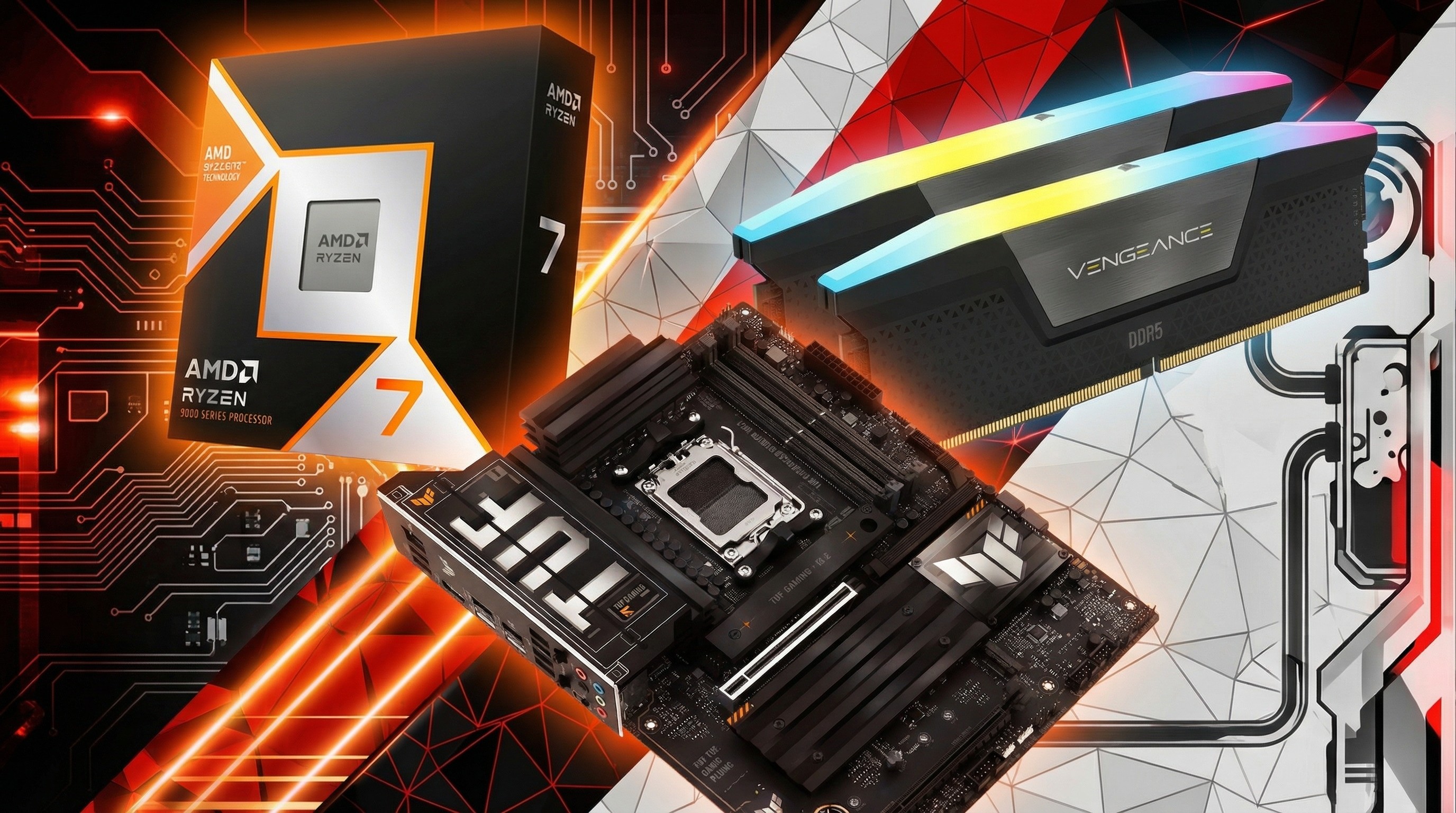Xbox is following Nintendo, not PlayStation, into the future
"Why would Xbox want to follow Nintendo and its struggling Wii U? Shouldn't Microsoft be chasing Sony's PlayStation 4?"
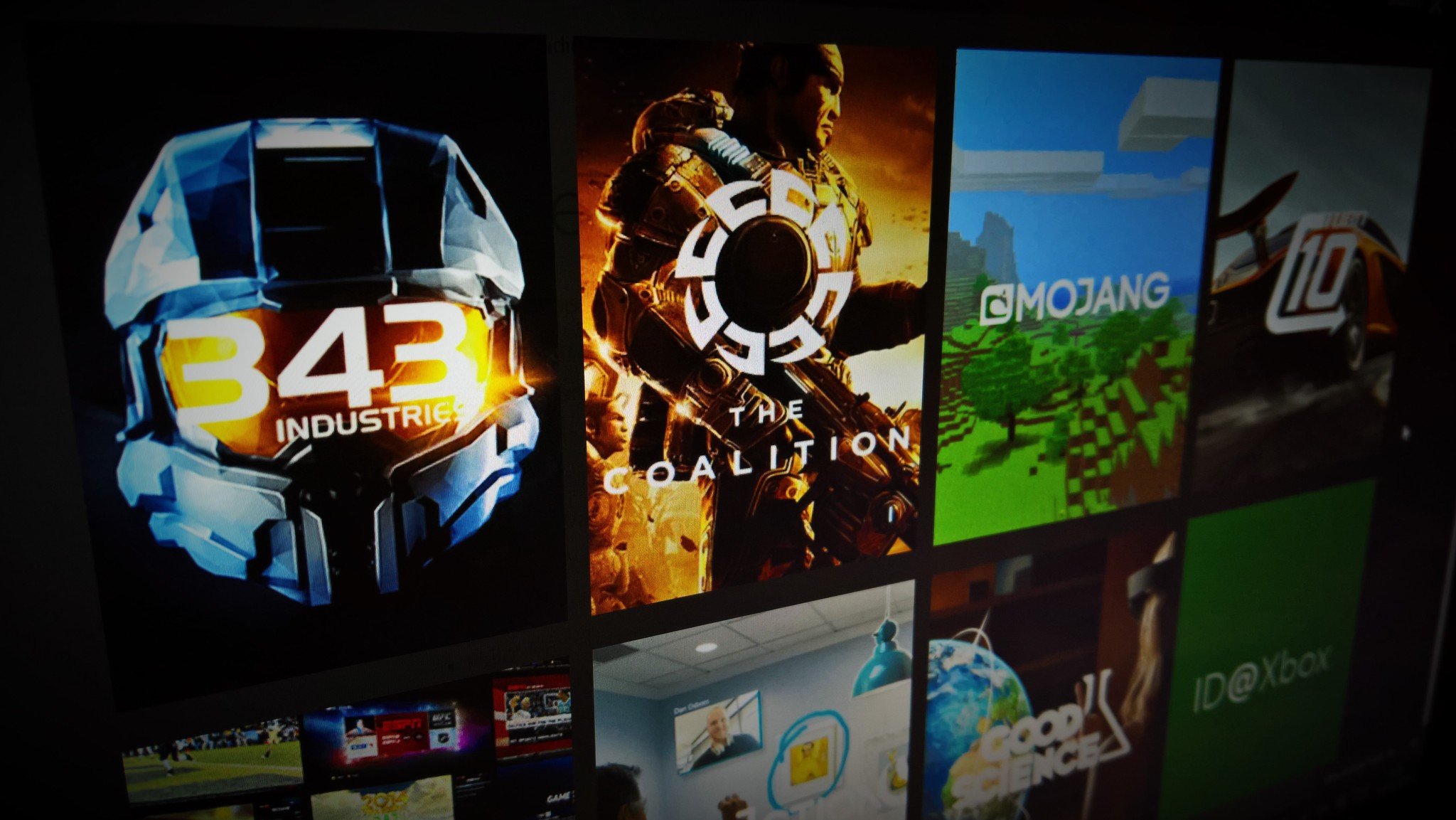
If you've been following Xbox since it was taken over by Phil Spencer back in 2014, it certainly seems like Microsoft is evoking Nintendo rather than Sony, when it comes to Xbox's future. A massive drive to develop new franchises and characters. Evoking nostalgia with the likes of Rare Replay, a collection of games from beloved franchises from yesteryear. Cross-franchise promotion, following the fact that Halo's Arbiter, will join Battletoads' Rash as a guest character in Killer Instinct. And all those marketing campaigns that place the emphasis on the Xbox One's games lineup.
What do these random facts have in common? Major Nelson has hinted in the past that Microsoft is playing the long game when it comes to the Xbox One, but that game might be even longer than we think. Far from the market share-obsessed fanboys and investment hawks who'd prefer to see Microsoft drop gaming, Phil Spencer's current strategy could solidify Xbox's place for decades to come — and I think they're taking a page out of Nintendo's playbook to achieve it.
The state of play
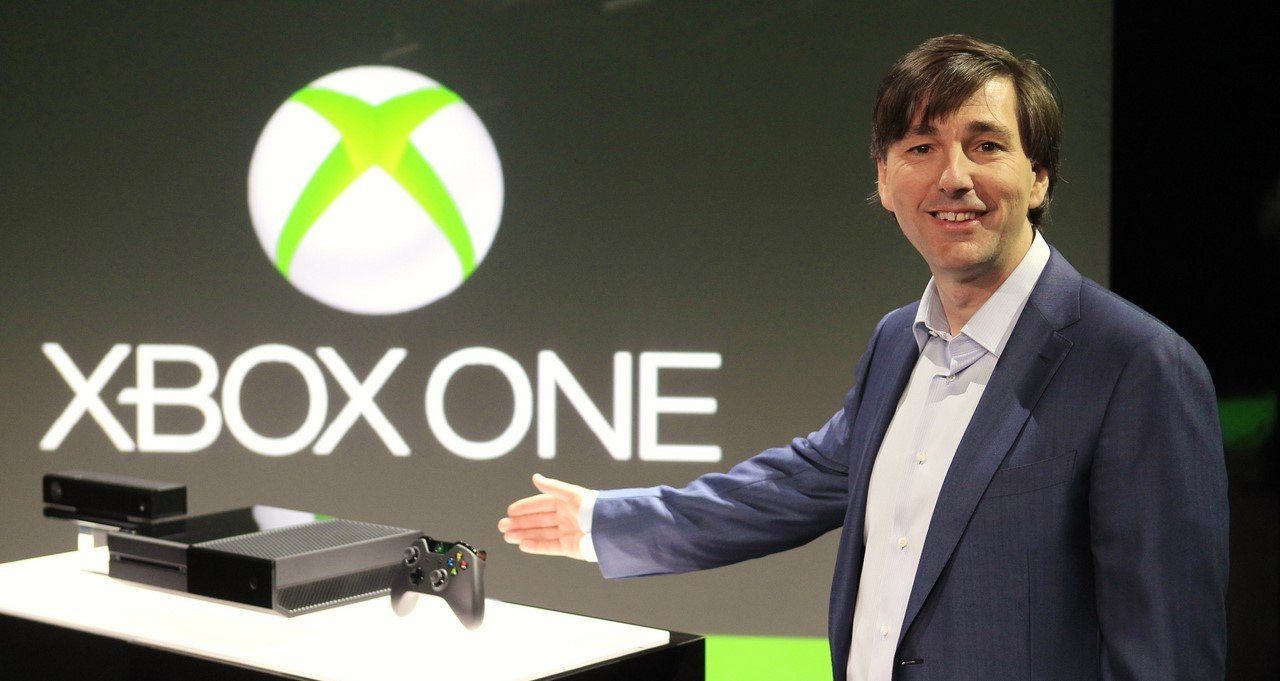
Today's Microsoft has proven itself to be incredibly forward-facing. From the futuristic HoloLens to the "cloud first, mobile first" mantra we keep hearing, beating like a war drum. Satya Nadella's mission statement isn't just a reference to server farms and rectangular smartphones, they're concepts that will encompass the future of software delivery. It's hard to fully envision, but I'm going to try and explain why I think Microsoft's party line isn't just spin for press releases, and why it's important for the Xbox of the future.
When the Xbox One first launched, the company shot (nuked) itself in the foot. The Xbox One had digital rights management (DRM), putting a limit on the number of times a disc could be sold without going through a "participating retailer". They put a heavy emphasis on entertainment, going as far as building their own studio, Xbox Entertainment, filling it with major industry talent. All this before mentioning games — and parts of the gaming media and community continue to punish them for it. However, I believe some of these elements were just poorly presented aspects of a long-term, but very sound, strategy.
Xbox's current head, Phil Spencer, appears to know how to solidify Xbox's place without alienating today's audiences.
Limiting physical discs in the console space, while aggressive, is simply the reality of where technology is heading. Physical retail is dying, more and more of us are switching to digital, and while millions of us are still bound to shoddy internet speeds and data caps — this won't always be the case. DRM helped Valve transform from a modest game developer into a retail powerhouse, via Steam, and it's an example of how DRM can be done well to both serve consumers and developers. Microsoft pulled the trigger too early, but they haven't changed their strategy. Some of the sales Microsoft offered Xbox One digital customers over Christmas were very generous, very Steam-like.
On the Xbox Entertainment Studios side of things, I think it represents a bit of collateral damage in the fallout, but their aspirations in this space are far from dead. The studio itself may have been shuttered, but some of its projects are still alive and kicking. Quantum Break's big-budget live-action experiment is a residual product of those ideas, and the studio's live-action Halo project is on-going, produced by none other Steven Spielberg himself.
What does all this have to do with Nintendo? I think that these aspects, under former Xbox head Don Mattrick, reflect a less-refined attempt at building on a wider, long-term strategy for Xbox, and in some ways, Windows. Thankfully, Xbox's current head, Phil Spencer, appears to know how to solidify Xbox's place without alienating today's audiences, preparing for a future when we'll look back on 2016 and think our fibre-optic internet speeds and disc-based media consumption are equal parts embarrassing and primitive.
All the latest news, reviews, and guides for Windows and Xbox diehards.
Cloud first
Since Sony's well-documented head start and subsequently persistent lead over the Xbox One, both journalists and inclined fanboys point to the figures. Numbers are a universal language, and present an easy narrative to both understand and explain (and create clickbaity headlines from). The truth is, whether or not Xbox One "wins" this console generation is irrelevant. Microsoft is positioning its pieces to navigate a looming upheaval where the hardware that sits in your palm, sits beneath your TV, on your desk, and on your head simply won't matter. Cloud first, mobility first.
The "cloud first" part of Microsoft's mission statement references a future where the internet is powerful enough, ubiquitous enough, and the Microsoft Cloud is vast enough, to deliver full-blown games to any device you're using via the web. Following this theoretical outcome based on current trends, as a wild example, Microsoft Azure could eventually provide games to any device's display in Super-Ultra-Mega-16K definition, with insane near-realism models and effects, all without a disc.

Microsoft has stopped offering raw Xbox sales figures in their financial calls to investors, focusing instead on Xbox Live engagement as a metric. This shift isn't spin or embarrassment; it merely reflects the direction the industry is heading toward. In Microsoft's cloud-powered future where the hardware matters less, Xbox will be measured by the power of its cloud, its software, and its engagement. At least concerning server infrastructure, Microsoft is ahead of Sony and Nintendo by decades.
The final piece of the Xbox puzzle isn't beating PS4's sales lead in this generation; it's achieving that gaming brand ubiquity that has made Nintendo an immortal company.
On the other hand, one could argue Nintendo is ahead in the software department — and by software, what I really mean is video game properties. Despite the poor sales of the Wii U, nobody in their right mind is declaring Nintendo to be dead. The company has billions in raw cash, and the value of Nintendo's intellectual property (IP) is virtually unrivaled, sitting among the likes of Disney and Warner Brothers when it comes to global recognition. Pokemon, Zelda, and Mario are household brands — your parents have heard of them, maybe even your grandparents. Unless your folks are exceptionally cool, they likely haven't heard of Alan Wake, Gears of War, The Last of Us or Uncharted. They might've heard of Halo, however, and they've almost undoubtedly heard of Minecraft.
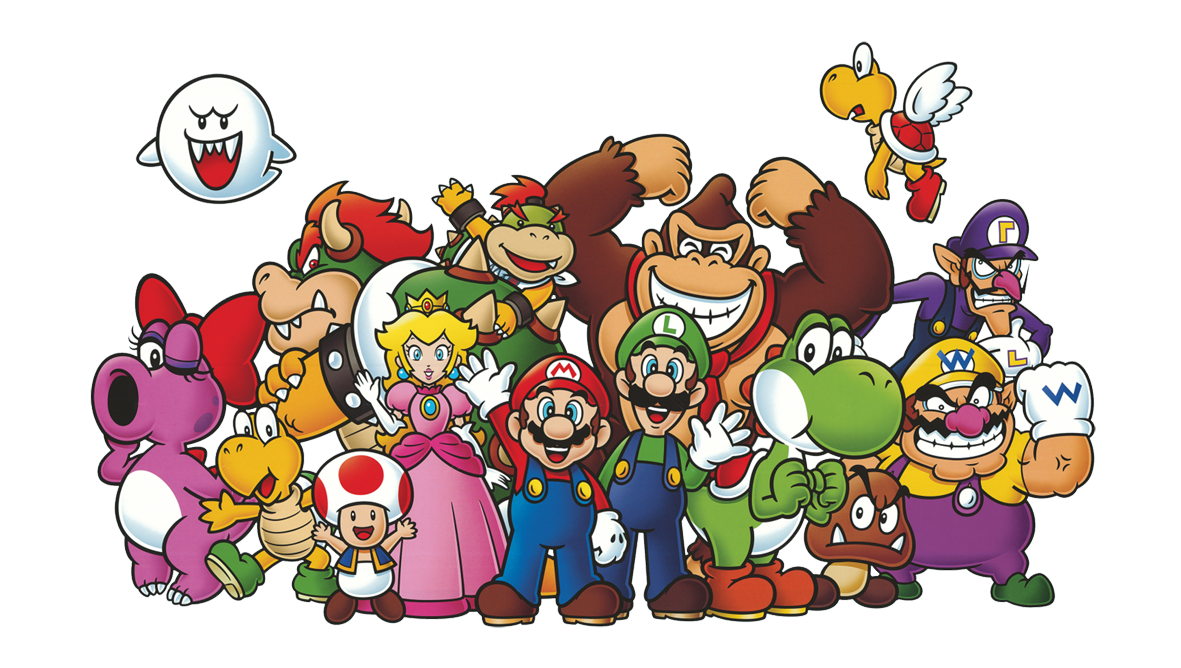
The final piece of the Xbox puzzle isn't beating PS4's sales lead in this generation; it's achieving that gaming brand omnipresence that has made Nintendo an immortal company. Whether you're a Nintendo fan or not, their video game brands are second to none when it comes to staying power. That nostalgia is a commodity that Nintendo has in bulk amounts, and I think Microsoft is starting to understand just how powerful and significant it could be for an Xbox in a hardware-agnostic future. The Minecraft purchase was a no-brainer, and it's just the beginning.
Mobility first
If you're a believer in the cloud, then you know that the gaming console battleground will shift towards features, software, and services, and Microsoft, Sony, and Nintendo have already begun heading towards this endgame.
On the services side of things, Xbox Live is miles ahead. It already has 48 million active users. Microsoft is adding further incentives to engage with the platform, developing a social network, bringing in features like status updates, notifications, and trending content right into the dashboard and the Windows 10 app. I'd like to stress that I highly doubt that the end of Xbox as a physical device is on the table, or even being considered as a long-term possibility. However, if our purchasing continues to shift towards digital and internet delivery continues to improve globally, the endgame is plainly evident.
One day, streaming games to any device in that platform's family will be the status quo — which forms the "mobility" part of the Microsoft mission statement.
Nintendo already has many social features baked into the Wii U, and its next console (codenamed NX) is widely expected to be disc-less based on patents relating to the device, and thus prepared for a digital tomorrow. The Wii U itself explored the idea of second-screen game streaming, something Microsoft evolved further with Xbox to Windows 10 streaming.
Sony has taken a few extra steps when it comes to a streaming future with PlayStation Now, which is filled both with classics and modern games from Sony's sizable back catalog. Sony has also baked PlayStation Now into its svelte PlayStation TV device, in addition to select TV models, offering a glimpse into the future of console gaming across all platforms.
At this point, though, internet-based game streaming is a little too laggy and a little too expensive to be worthwhile for the vast majority — for now. This is why Microsoft hasn't pulled the trigger on similar features, but as global internet reliability improves, it'll become inevitable.
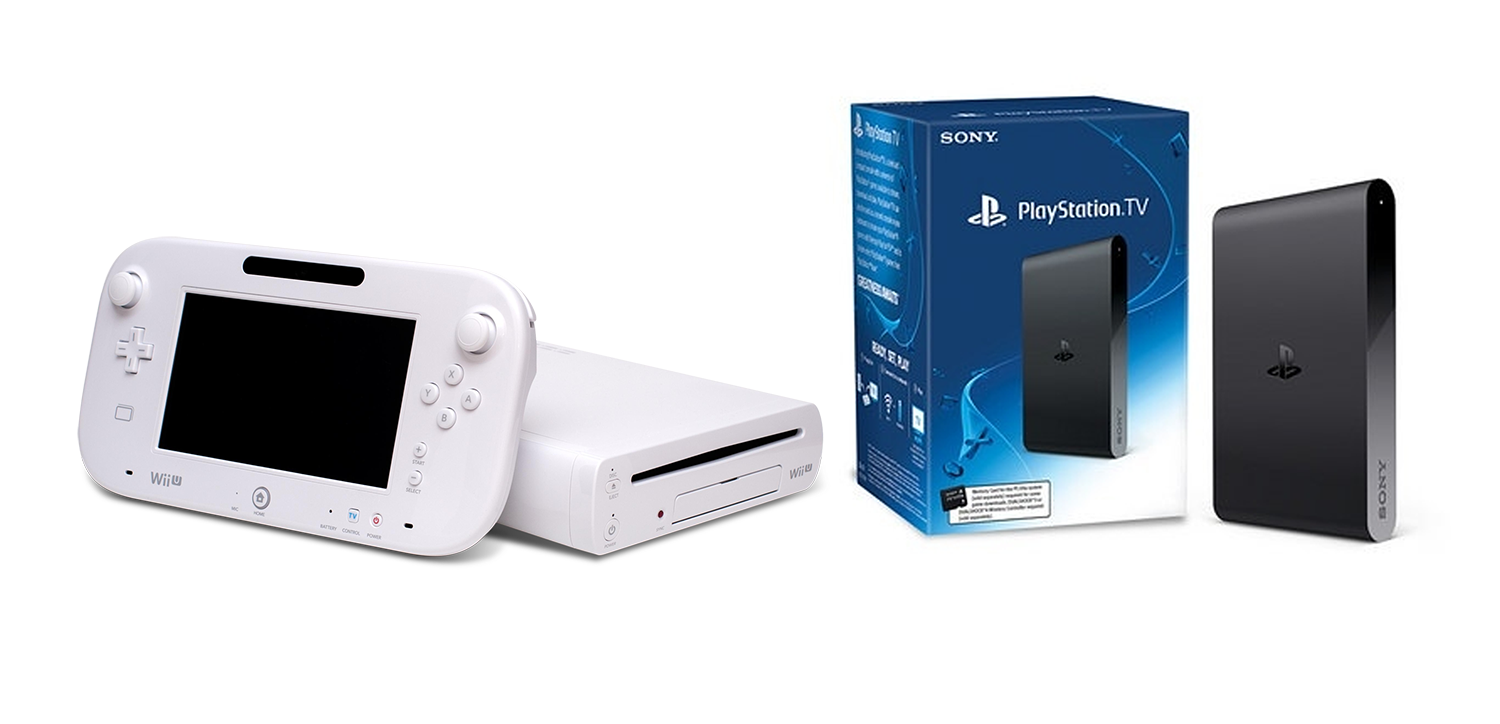
Instead of going all-in on an always-on console or premature game-streaming service, Phil Spencer's Xbox is investing in today's audience, in today's fans, and today's global internet infrastructure. This game-focused strategy is not only helping sell Xbox One consoles today, but it's an investment in the future. Shifting budgets towards creating and developing new and existing video game franchises is an attempt to build up a portfolio that can immortalize Xbox as a video game platform long into the future — following the likes of Mario and Pokemon in the Nintendo world.
Internet-based game streaming is still a little too laggy and a little too expensive to be worthwhile for the vast majority — for now.
In a future where mobility is king, the quality of the cloud infrastructure, games, apps and features will be the only things that matter to the consumer of tomorrow. Microsoft has the cloud infrastructure on the ground (and in the water). If third-party titles from companies like EA and Ubisoft continue to appear in all stores, it'll be Sony's, Nintendo's and Microsoft's exclusive titles and services that draw in customers.
There are other factors to consider, of course. Both Sony and Microsoft have been eager to corral third-party franchises into exclusivity deals. Whether it's a lifetime console exclusivity like PS4's Street Fighter V or timed exclusivity like Xbox's Rise of the Tomb Raider, the value of being able to attach your console's brand to these sorts of titles is potent, but also volatile. In the short term, a casual gamer might see an Xbox logo on Fallout 4's branding or a PlayStation logo on Destiny's branding and presume they're exclusive titles, but core gamers and influencers know these sorts of deals are just smoke and mirrors.
Games first
When it comes to the long term, Xbox appears to be going all-in to curate exclusive, in-house franchises that fans of all ages can truly fall in love with, and I think most of you will agree that they've been doing an excellent job of it so far.
All of these things points to a strategy that sees games as a way to connect with, engage and delight customers for decades to come — emulating Nintendo's biggest strength.
Consider what we've seen regarding Xbox exclusives. The Minecraft purchase, the Gears of War purchase. The fever for an Alan Wake sequel. The fact that Rare — a studio steeped in nostalgia — is finally featuring in Microsoft's triple-A lineup with Sea of Thieves. Seeing guests from other Xbox properties appear in Killer Instinct — reminiscent of Nintendo's cross-promotional Super Smash Brothers. The fact ancient Age of Empires titles have begun getting updates again after all of these years — showing that Xbox no longer takes nostalgia for granted.
Phil Spencer, despite the closing down of Xbox Entertainment Studios, stated that some Xbox franchises lend themselves well to movies and TV, hinting that we could see more projects like the upcoming Halo series — furthering mass-market engagement with these franchises. The leveraging of Windows 10's market share to put Microsoft Studios franchises like Quantum Break, Fable Legends and Killer Instinct on both Xbox One and Windows shows that the company is serious about developing their portfolio and expanding their fan base — Minecraft likely wouldn't be the global phenomenon it is today if it was a full Xbox exclusive. Finally, backwards compatibility, which is essentially the killer feature for harvesting nostalgia, bringing earlier games titles from franchises like Gears and Halo with us into the future.
All of these things points to a strategy that sees games as a way to connect with, engage and delight customers for decades to come — emulating Nintendo's biggest strength.
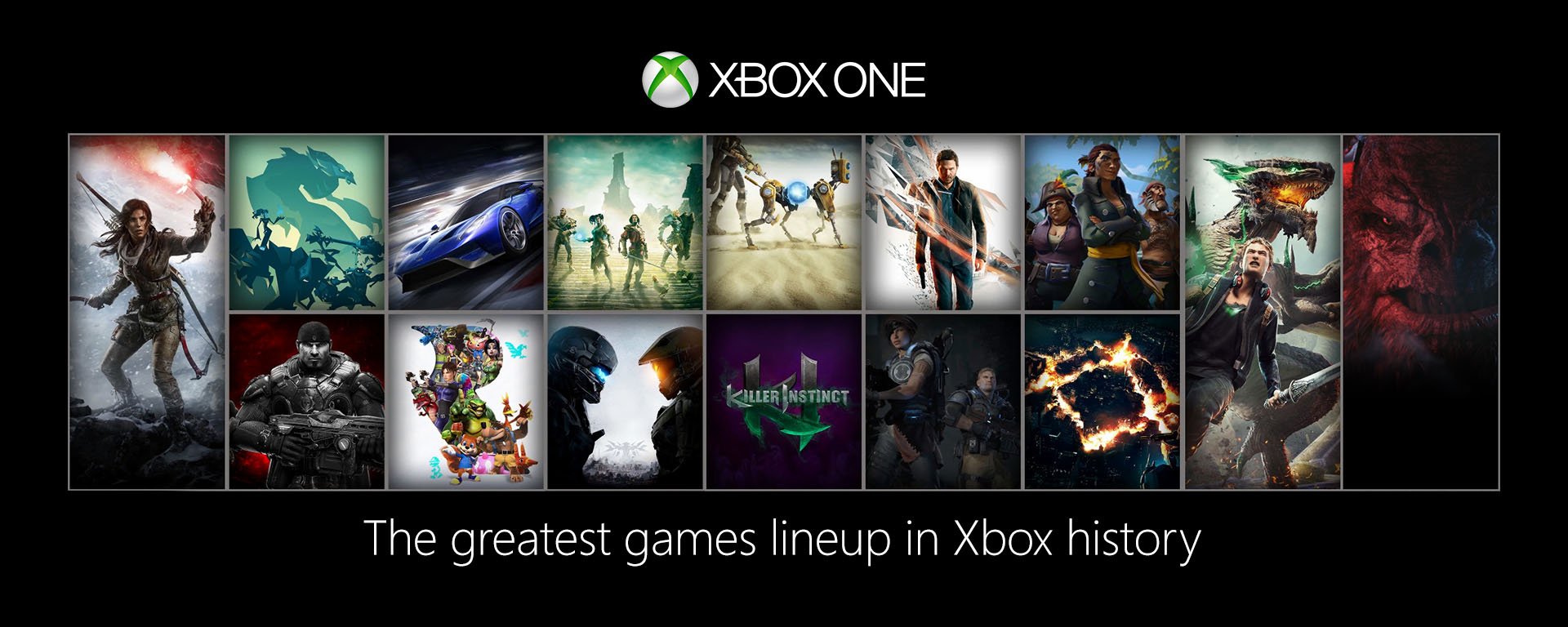
Xbox is the only division that Microsoft has that inspires adoration at a consumer mass market level. Hundreds of millions use Office and Windows, but they're functional utilities. Entertainment is a powerful way to establish an emotional connection with your brand, and it's the knowledge of that fact that drives both Nintendo and Phil Spencer's Xbox — but this isn't to say Sony doesn't see the value in IP. Between their well-documented financial troubles, restructuring, and investments in VR and networking tech, Sony can arguably take a backseat on their in-house portfolio. For now, they can allow third parties like EA and Ubisoft to sell the PS4, combined with the simple sales technique of "my friend has a PS4, so I'll buy one too", riding on their head start in a similar manner as the Xbox 360 did in the previous generation of consoles.
Xbox is directly essential to Microsoft's Windows 10 ecosystem strategy, and that includes Xbox hardware. Phil Spencer previously noted how music through iTunes helped a beleaguered 90's Apple re-connect with consumers. When you see the sheer amount of new IP that Xbox is responsible for, it begins to hit home just how serious Microsoft is about curating those experiences under Xbox:
"I fundamentally believe for this company that gaming can be a real catalyst for Microsoft's re-emergence as a consumer company. I go back and I look at Apple and they, on the back of music, became a very relevant consumer brand. Their investment in music early with the iPod and iTunes and everything that they did was an incredible growth opportunity for them, and they really sparked consumer delight and innovation in the product. Both the industrial design and just the way the whole service worked and I think we've got the same opportunity with Xbox here at Microsoft."
It just feels a little like Microsoft is treating their in-house gaming franchises and studios with a bit more love than they did back in the Xbox 360 era, which was dominated by third-party titles, and very few exclusives. We saw Ensemble Studios — famed for Age of Empires — shut its doors, we saw Rare's legendary creativity funneled exclusively towards Kinect, and the very idea of reviving dormant franchises like Phantom Dust or Halo Wars seemed unlikely at best. Halo, Forza, and Gears all have dedicated studios under 343i, Turn 10 and The Coalition respectively, and I wouldn't be surprised if other Microsoft-owned franchises pick up similar bespoke teams as well in the future.
Xbox has dozens of franchises in active development. Crackdown, Project Knoxville, Quantum Break, State of Decay, Alan Wake, Halo, Gears of War, Fable, Halo Wars, Sea of Thieves, Age of Empires, Minecraft, ReCore, Forza, Killer Instinct, Scalebound, and who knows how many as-of-yet unrevealed games are in development. I think it's safe to expect more nostalgic reboots and sequels as well.
Xbox and its growing range of exclusives will be well placed to facilitate that paradigm shift.

All of these properties are active, and Microsoft is working tirelessly through Xbox's messaging to make them synonymous with the brand, and ultimately, the service, for which millions of us are paying. In a cloud-based future where mobility is king, Xbox will aim to solidify its place as a leading games network, retailer, and publisher, where the hardware is secondary to the service and software — and frankly, that's always been the case. Hardware sales are never where a console company makes its cash — it's through licensing games and, with the advent of Xbox Live, selling subscriptions.
If the future is streaming our digital content to a gigantic virtual screen while wearing HoloLens 3, Xbox and its growing range of exclusives will be well best placed to facilitate that paradigm shift. I believe Microsoft will continue to offer native Xbox hardware experiences as well, they'll just be part of the family rather than the centerpiece.
Immortalizing Xbox
Creating new franchises and shifting paradigms never make for smooth sailing, but today's Xbox is boldly investing in that future. By putting games and Xbox Live services and features ahead of chasing that symbolic hardware sales lead, Microsoft is not only ensuring Xbox's survival but also its growth. In the device-agnostic, cloud-first world Microsoft expects, Xbox's expanding and prolific video game offering will be the hook Microsoft uses to bring gamers into the cloud.
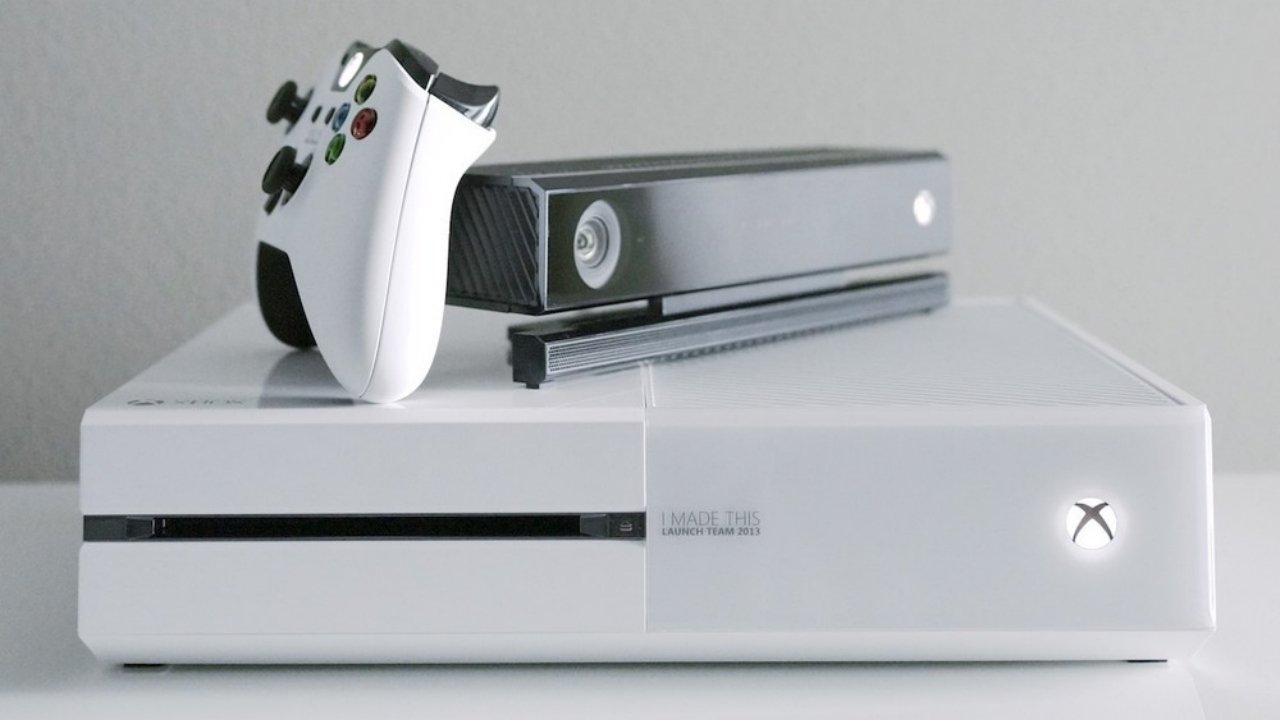
It doesn't matter if viable cloud streaming is decades into the future, because that's how long it took Nintendo to curate its legendary video game brands that prevented a dud console or two from killing its business. What does that mean for us as Xbox customers? It means more games, more sequels, more revenue, and more investment to help every Microsoft Studios franchise reach the potential of Halo and Minecraft.
Phil Spencer said he hoped to see Microsoft's commitment to gaming acknowledged as an important part of its history, and if they continue this path, it just may well be.
"I think we have that opportunity. I don't think it's a lay-up, and I think there's a lot of work. A lot of things that have to be done. But it would be great to be a part of that — if people look back and said 'this is when Microsoft committed to gaming across everything that we did, led with what we do on Xbox One, and that was an important part in their history.'"
Whether this generation is won or lost in terms of raw console sale numbers is irrelevant, even if Xbox does 'win' in the end. Xbox's strategy is on point — eventually, Xbox won't have a gaming portfolio, it'll have a gaming pantheon.

Jez Corden is the Executive Editor at Windows Central, focusing primarily on all things Xbox and gaming. Jez is known for breaking exclusive news and analysis as relates to the Microsoft ecosystem while being powered by tea. Follow on Twitter (X) and tune in to the XB2 Podcast, all about, you guessed it, Xbox!



